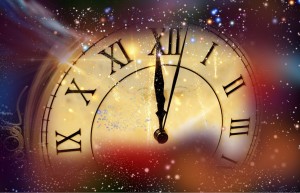Time Has a Beginning

For thousands of years, as far back as the time of Aristotle, most scientists assumed the universe has always existed, in essentially the same form as it is today. They referred it as “static”, thinking stars were suspended motionless in a vast void, with no beginning or end.
Albert Einstein was the first modern scientist to find a clue that the universe is actually expanding, from a central point. His calculations showed that all the matter and energy in the Universe, and even space and time, has a beginning. Because the static universe was such a central assumption in astronomy and physics, Einstein thought there was an error in his calculations.
He decided to add a number to his equations, which he called the “Cosmological Constant”, which canceled out the expansion of the universe from his calculations. Later, he admitted that decision was a mistake. Strongly held beliefs can cause even the most brilliant scientists to reach wrong conclusions.
In the 1920’s, with the help of the latest telescopes, American astronomer Edwin Hubble announced a series of dramatic discoveries which completely changed our view of the universe. He discovered that the universe was much larger than our Milky Way Galaxy, and that the universe was growing in size. And he observed that the stars were all moving away from a central point in space.
So logically, the universe must have had some beginning when it was very tiny, an idea which gave rise to the theory of the Big Bang, which is now almost universally accepted.
Conclusion:
The Universe appears to have a first cause that is outside our dimensions of space and time.
